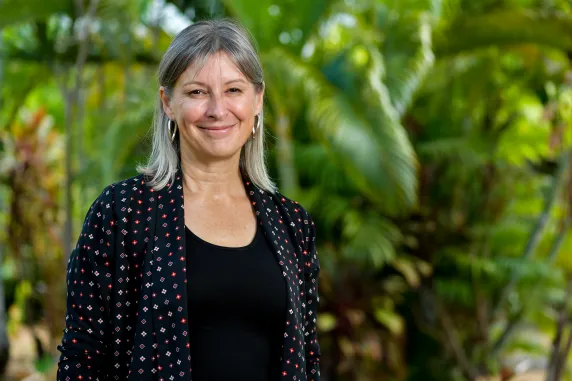Female refugees not adequately supported, according to CDU research
Female refugees are a highly vulnerable population and are at particular risk of experiencing a range of complex physical and mental health challenges throughout their resettlement journey, according to new research by Charles Darwin University (CDU).
The research aims to improve the wellbeing of female refugees, and found that female refugees are more at risk of experiencing complex mental and physical health problems throughout their journey to resettlement than their male counterparts.
CDU’s School of Health and Human Sciences lead author, Claire Hawkes, said the challenges and stressors associated with regional resettlement for women of refugee backgrounds are poorly understood.
“The study aims to address this notable and urgent gap within research, by exploring resettlement stressors in women of Refugee Background resettled in regional locations of Australia,” Ms Hawkes said.
“This study holds the potential to inform future policy and practices to increase the likelihood of positive resettlement outcome and enhancing the well-being of these women during resettlement.”
CDU School of Health and Human Sciences Dr Janine Joyce was another contributor to the research who said women of refugee backgrounds need opportunities to integrate into the community and have adequate supports.
“Looking after women of refugee backgrounds by giving them the language capabilities to communicate their needs, earn a living with their skills and form new social connections, is in everyone’s best interests,” Dr Joyce said.
“We identified that these women often struggle to get support for ongoing stress and mental health concerns due to limited availability of specialist mental health support services,” she said.
The authors argue that the push to resettle not only Women of Refugee Background, but refugee populations in general to regional Australia, has occurred without consideration of the additional support needs and funding that regional communities will require to provide assistance.
In Australia, regional and rural communities are seeing an increase in the resettlement of female refugees. This coincides with the Australian Government’s push to increase the number of new humanitarian arrivals to regional communities to 50 per cent by 2022.
The article was recently published in the International Journal of Environmental Research and Public Health.
Related Articles

First “hype cycle” of AI development put tech above humans
Users around the world have rushed to adopt artificial intelligence - especially in safety-critical fields - but a new study has revealed the hype has prioritised technology for technology’s sake instead of human-centred development.
Read more about First “hype cycle” of AI development put tech above humans
Nanoplastics hindering cognitive abilities of fish, international research shows
Nanoplastic exposure can impair the cognitive abilities of fish and could lead to significant impacts on marine species’ ability to survive, according to a new international study.
Read more about Nanoplastics hindering cognitive abilities of fish, international research shows
New project to grow Indigenous aquaculture on one of Australia’s largest islands
An Australian island’s efforts to improve food security and transition into a blue economy will be bolstered by a new project to propagate a nutritious and increasingly popular fish.
Read more about New project to grow Indigenous aquaculture on one of Australia’s largest islands
